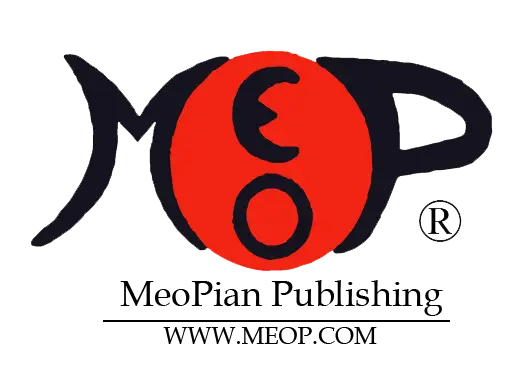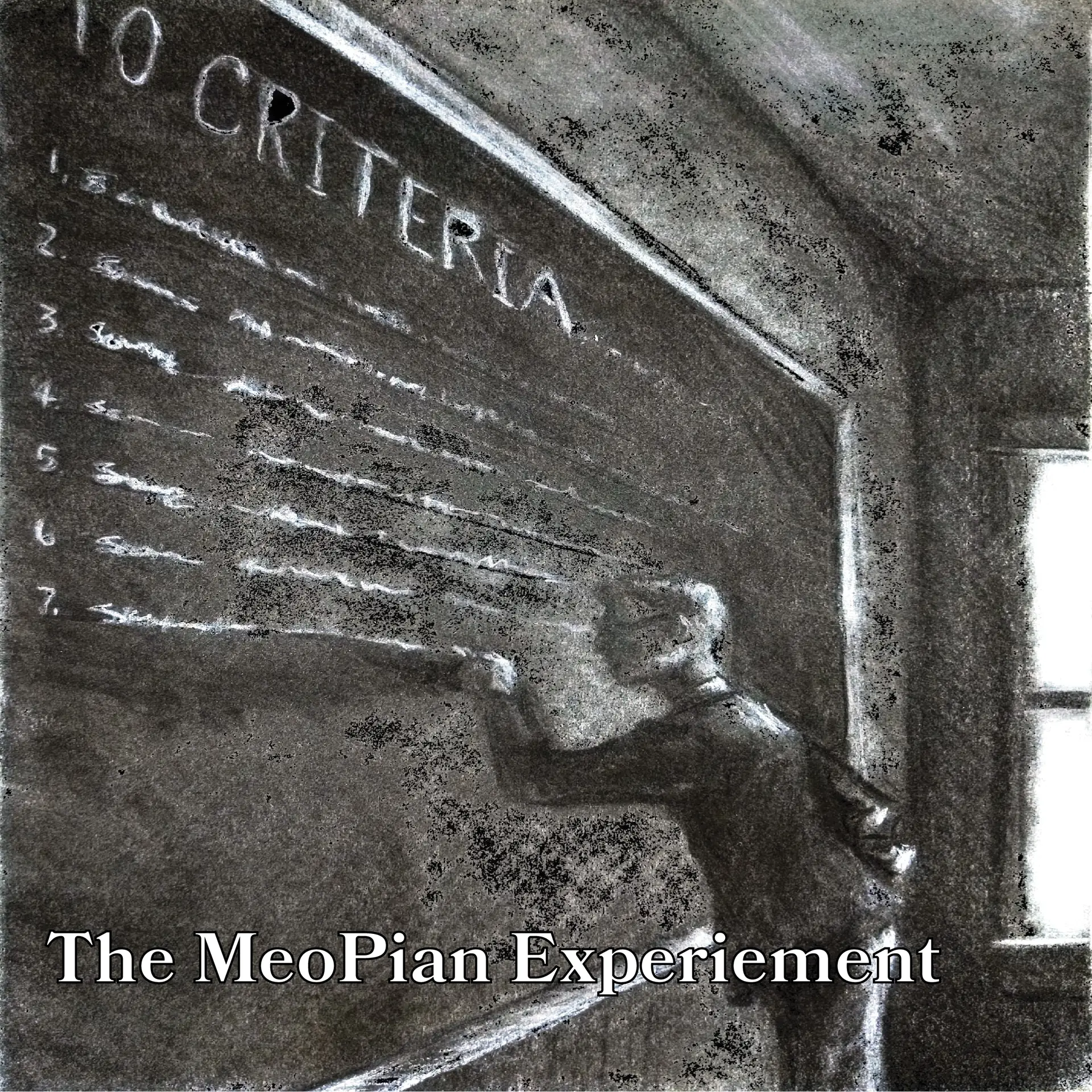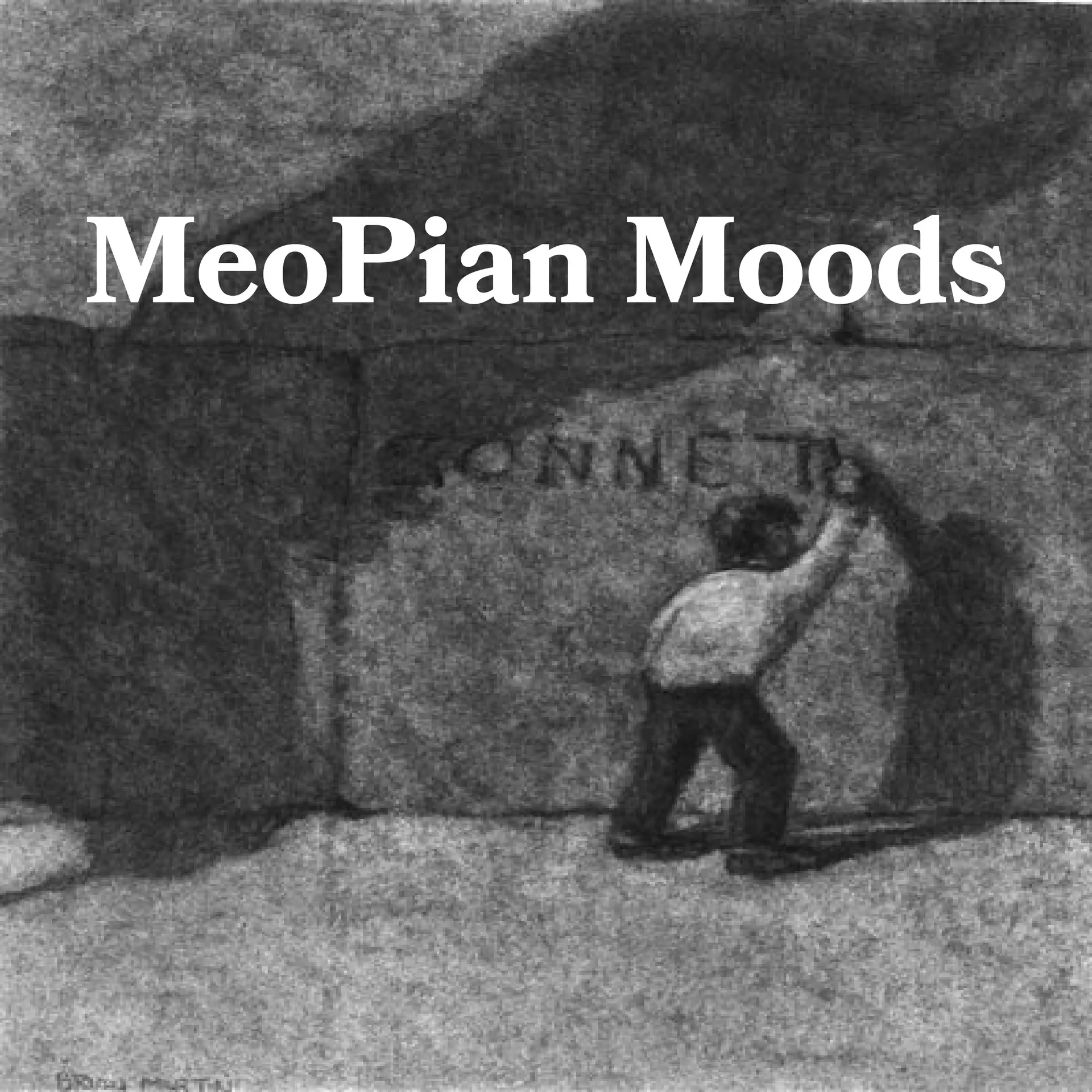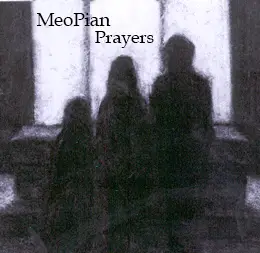The MeoP Concept
The MeoPian Experiment
I intend to explain Consciousness by defining an earth-bound entity named Earth-God and Humanities role in its evolution through a concept named MeoP. I argue that consciousness is the result of Humanity interacting and influencing an evolving cluster of memories named Earth-God. Because Earth-God is unique to the Earth, and it also has spiritual qualities, it was so named. This cluster of memories is structurally increasing in density, while initiating consciousness by radiating memory impulses. It is our interaction with these memory impulses that produce new thoughts. These newly created thoughts (thoughts become memories the moment they occur) are then absorbed within Earth-God, simultaneous altering its cumulative composition. Thus, exists a perpetual process of give and receive, where Earth-God arouses our consciousness, requires a response and is then changed by the responses that we provide.
So, upon accepting the premise, that Earth-God is constantly evolving and acquiring a different cumulative composition, it then follows that other factors may also influence its composition. Gravity is one such factor. Because of gravity, Earth-God does not exist in outer-space. Gravity restricts Earth-God from radiating its impulses beyond the gravitational limits of our planet. This means that Earth-God does not exist on Venus, Mars or the Moon, instead being unique to the Earth, existing as remote memory impulses within our atmosphere.
To further understand Earth-God’s restricted physical boundaries and constant evolution, consider a container filled with oxygen. More oxygen can be added into the container, making the oxygen denser, but the size of the container has not changed. Similarly, Earth-God is increasing in density, but it cannot expand beyond the perimeter of Earth’s gravity.
Most of our continuous interaction with Earth-God is effortless and natural. Such a shared existence requires only our responding thoughts, since Earth-God provides the essential radiations for consciousness. Our thinking then occurs when we interact with these memory impulses and produce a thought. The specific memory impulses that we encounter and the subsequent thoughts that we will have, are ultimately determined by our birth-given disposition (MeoP) interacting with Earth-God.
The MeoP Concept was developed by combining (Me-Opposite) to explain Human Stream of Consciousness. MeoP is a birth-given psychological disposition that interacts with Earth-God. The MeoP Concept asserts that people are born with a psychological disposition that interacts with memories and produces new thoughts. It can be further understood as a psychological calibration that sifts, scans and assimilates with Earth-God’s memory radiations, and invokes a human thought. Our thoughts are ultimately determined by which memory radiations our MeoPs will encounter and how they are influenced by these encounters.
The memory radiations that we will eventually encounter are primarily determined by our birth-given disposition (MeoP). Since everyone is born with a unique combination of birth-given dispositions, each person will encounter different memory radiations, ultimately resulting in the different thoughts that we will have. The phenomenon of Déjà vu can be understood as a strong connection with specific memories within Earth-God. It is our birth-given disposition (MeoP) interacting with Earth-God and events of the self-evident world, that gradually fosters the development of our MeoPian Perspectives
Your MeoPian Perspective is the single most important variable influencing your life, because it determines the type of unique thoughts that you will have. Being simplistic at birth, your MeoPian Perspective develops and evolves as your MeoP encounters and interacts with Worldly Events and Earth-God’s memory radiations. These encounters are uniquely different for each person because of our unique birth-given dispositions. A specific occasion may have a profound influence on one person, but have no effect on another person because of their developing MeoPian Perspective.
The MeoP Concept asserts that every situation we encounter, every sight we see and every sound we hear, will make an indelible impression on our MeoPian Perspective. Consequently, all of the physical events of the self-evident world will influence the development of our Perspectives. This process of constantly acquiring a new Perspective will continue through-out our lives. The resulting suggestion of this ongoing process, is that our changing Perspectives and our subsequent contingent thoughts of tomorrow, would not be possible today. Changes in individual preferences for certain types of art, music and literature are examples of our changing Perspectives. Because of my previous life experiences and their contribution to the development of my current MeoPian Perspective, I am now able to have the thoughts that I have today.
Therefore, given our reliance on Earth-God for consciousness and our intrinsic role in its evolution, consider the possibility that humanity we may be able to change future consciousness by simply contributing thoughts. In doing so we can make a macrocosmic impact with the microcosmic impact of our thoughts. A timeless tabulation that juxtaposes good and evil, as we vie for control of its cumulative composition. Control that will enable us to collectively sway the growing tide of negativity, for everything from the slightest whimsical farce to the worst of World War effects Earth-God in some way.
So, if we agree that we can change Earth-God by simply contributing positive thoughts, it then becomes prudent to find the best way to do this. One way is to align ourselves with Religious Icons. Icons Of Goodness that are collective reservoirs of positive memory, becoming brighter with each thought that we attribute to them. Since these Icons are greater than we can possibly become, our thoughts can have a more powerful impact by aligning ourselves with these Symbols of Virtue. These Spiritual Icons thus become more significant with each prayer we make, enabling them to outshine the negativity that is constantly trying to corrupt us.
So how do we choose an Icon? Given the diversity of humanities religious experiences, how can we choose an Icon at the exclusion of the others? I avoid such exclusions by embracing all Icons of Goodness. Goodness! Goodness! Goodness! Tomorrow will be better.
In the mean-time I have designed an Experiment to test the merits of The MeoPian Hypothesis. An Experimental Model that shall test the validity of The MeoP Concept.
The MeoPian Experiment
Establish a control group, first by height and second by age. We are measuring the variable of age and how it influences a person’s decision to overcome an obstacle. Height is to minimize the differences.
The scenario for The MeoPian Experiment will be a suspended chain between two poles, navel height for each participant. Each participant will be told that the chain is an obstacle they must pass. The results will be tallied as follows:
- Some participants will go over.
- Some participants will go under.
- Some participants will touch the chain as they go over.
- Some participants will touch the chain as they go under.
- Some participants will hang on the chain before going over.
- Some participants will hang on the chain before going under.
- Some participants will balance on the chain before going over.
- Some participants will balance on the chain before going under.
- Some participants will try but not pass.
- Some participants will not try.
Correlate the results by age. I predict that the results will support a statistical margin by age group, establishing the difference that age has on our MeoPian Perspectives for overcoming obstacles.
Our MeoPian Perspectives provide the fundamental foundations that we each use to uniquely perceive the world. Earth-God can radiate the same memory impulse to multiple people, yet different thoughts will result. The Lumberjack, the Soldier and the Biologist each perceive the forest as a personal reflection of their MeoPian Perspectives.
The Lumberjack perceives the forest as the countless board feet that he can withdraw from its sprawling shade. The Soldier perceives the forest in terms of protective cover and the setting of military positions. And the Biologist perceives the forest as a series of ecological strata to examine. The point is that each of them perceives the forest as a personal reflection of their own private thoughts. Thoughts that determine how the forest will appear to them, given their own personal MeoPian Perspective.
These MeoPian Perspectives often appear in the activities that occupy our lives. The professions that we choose, the beliefs we hold, and the activities we practice all reflect our MeoPian Perspective. Activities that range from drugs, sex and status, to religion, family and friends. Activities as diverse as all the people that enact them.
Personally, I use poetry to pass the time. A rhythmic style that chimes with rhyme, while silently infusing the forest with moments of understanding. Moments laced with meaning in a life that arose to search and contribute, before retiring to a remote sector of Earth-God.
Lastly, since this is only a theory and I have no proof of its credence, I accept the possibility that I may be wrong. If another Philosophy provides you with more emotional comfort, then I encourage you to follow that path. This essay has no intention of gathering converts, so in the pursuit of tolerance I encourage everyone to follow their own beliefs.






